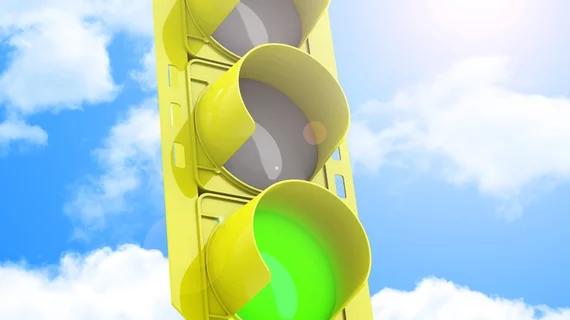10 notable regulatory approvals of diagnostic devices over the past 30 days
Along with radiology-specific software and products, this list may include newly greenlit offerings for use in radiotherapeutic, histologic, endoscopic, laparoscopic and other settings that are increasingly important to multidisciplinary care.
FEops (Gent, Belgium): FDA clearance for imaging-based preoperative planning of left atrial appendage occlusion (April 4)
Radiaction Medical (Tel Aviv): FDA clearance for C-arm mountable scattered radiation shielding (April 4)
Paige (New York): CE-IVD and UKCA marks for AI detection of breast cancer metastases in lymph notes on histopathology slides (April 6)
Merit Medical (South Jordan, Utah): FDA clearance for biopsy-deployable wire-free breast localization reflector (April 11)
Mauna Kea (Paris & Boston): FDA clearance for molecular flourescence image guidance during endoscopic, laparoscopic and needle-based procedures (April 12)
3D Systems (Rock Hill, S.C.): FDA clearance for 3D-printed radiotherapy bolus (April 21)
Clarius (Vancouver, B.C.): Health Canada approval of smartphone-compatible handheld ultrasound scanners (April 21)
Lunit (Seoul): CE mark for AI tumor proportion score analyzer (April 27)
Samsung/Boston Imaging (Seoul/Boston): FDA clearance for portable digital radiography machine (April 28)
iSono Health (South San Francisco): FDA clearance for automated wearable 3D breast ultrasound (May 3)

